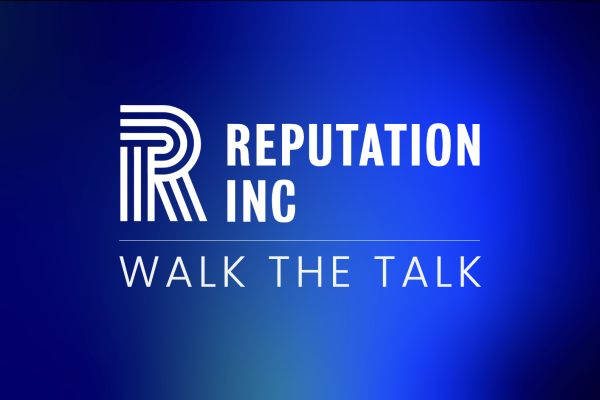
How leading organisations are using rankings to drive reputation
Every year, more than 500 rankings get published by media outlets around the world. Many organisations get listed in these corporate benchmarks whether or not they want to be included!
The rankings convey simple, but potentially powerful messages about the reputation of organisations contained therein. This includes whether or not they are seen as having an attractive employer brand, and whether or not they are leading in areas such as sustainability and innovation.
The growing buzz around the topic of rankings, and the role they play in contributing to a better reputation, was the topic at ReputationInc’s latest business breakfast on February 6th. A short summary video of the event can now be viewed by clicking here or on the image below:
Together with rankings specialist Steffen Rufenach, CEO at R.A.T.E., we explored this topic with leading communicators across Europe.
The challenges of the current rankings landscape were clear to many people in the room, including:
The fact that the quality of the growing proliferation of rankings varies massively, ranging from scientifically proven approaches that produce objective and reliable results to quick and more generic opinion polls producing the sentiment on a day.
Many corporate officers and other stakeholders also lack the know-how to differentiate between ‘good’ or ‘bad’ rankings, and thus are forced to taking their results at face value.
And companies who do decide to pro-actively manage their rankings tend to do in an unsystematic ad-hoc way with good results being leveraged, and bad ones being ignored.
One of our guests at the event, Clare Williams, Global Head of Reputation Management at Barclays, for instance, mentioned that rankings tend to being prioritised by different parts of the organisation and they can become too focused on one particular area. Yet, if you can bring them together in a holistic way then that’s where rankings can play an important part in how you manage your reputation.
This insight alludes to the fact that there are a growing number of companies that provide counsel in harnessing the power of rankings to their (corporate reputation’s) advantage. Some of their success principles include:
They STAY IN CONTROL by not holding themselves hostage to single rankings or irrelevant scores.
They ALIGN THEIR ranking management endeavours with reputation strategy, leveraging the reputation drivers that matter to what they want to achieve as a business.
They MANAGE EXPECTATIONS, educating internal and external stakeholders about what can and cannot be achieved with certain rankings.
They LEVERAGE ranking results, celebrating achievements inside and outside the organisation.
And last but by no means least, they INTEGRATE ranking results to gain more holistic reputation intelligence – both about their own perceived performance as well as from best practice inside and outside their sectors.
One of our keynote speakers at the event, Nancy Nackaerts, Director Corporate Reputation Management at Novartis International, stressed that a strategic benchmarking approach is important for Novartis. She noted that “we look at it as an important part of our whole reputation report building. It’s one of the sources and one of the indicators, to provide us with information about what our reputation is, how we are doing”.
The participants at the event were also at one with the recommendation that, to most successfully embrace ranking management, this needs to be done in alignment with business purpose and strategy.
As the seminar discussion confirmed, there is significant opportunity for organisations to benefit from a more systematic approach to monitoring and managing rankings as part of strategic reputation management. In partnership, ReputationInc and RATE are enabling organisations to leverage rankings for greater business success. Please get in touch to learn more about our work in this area.


